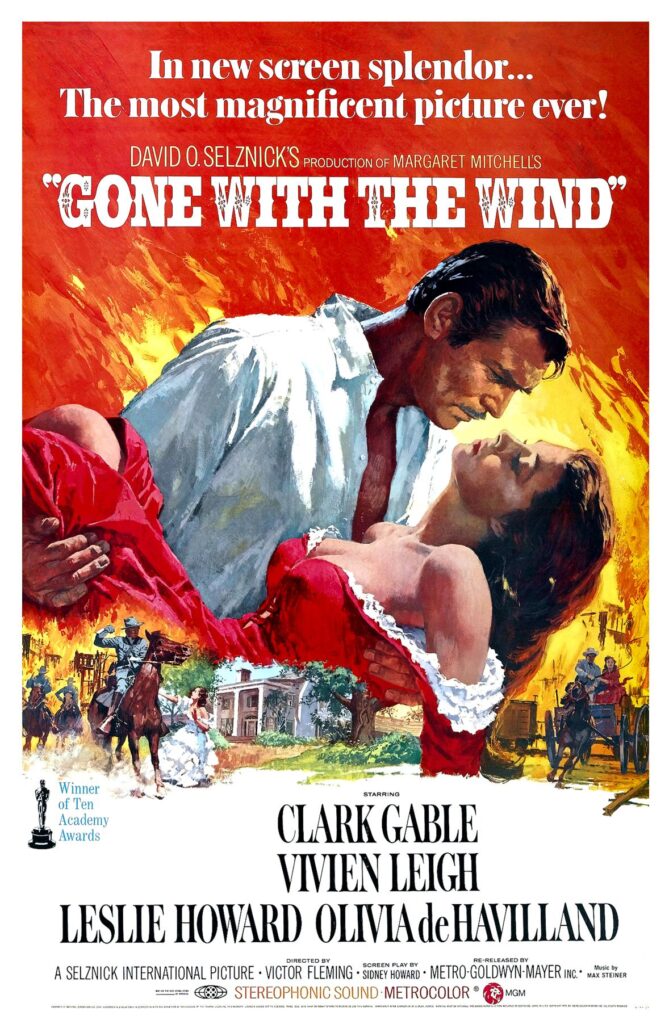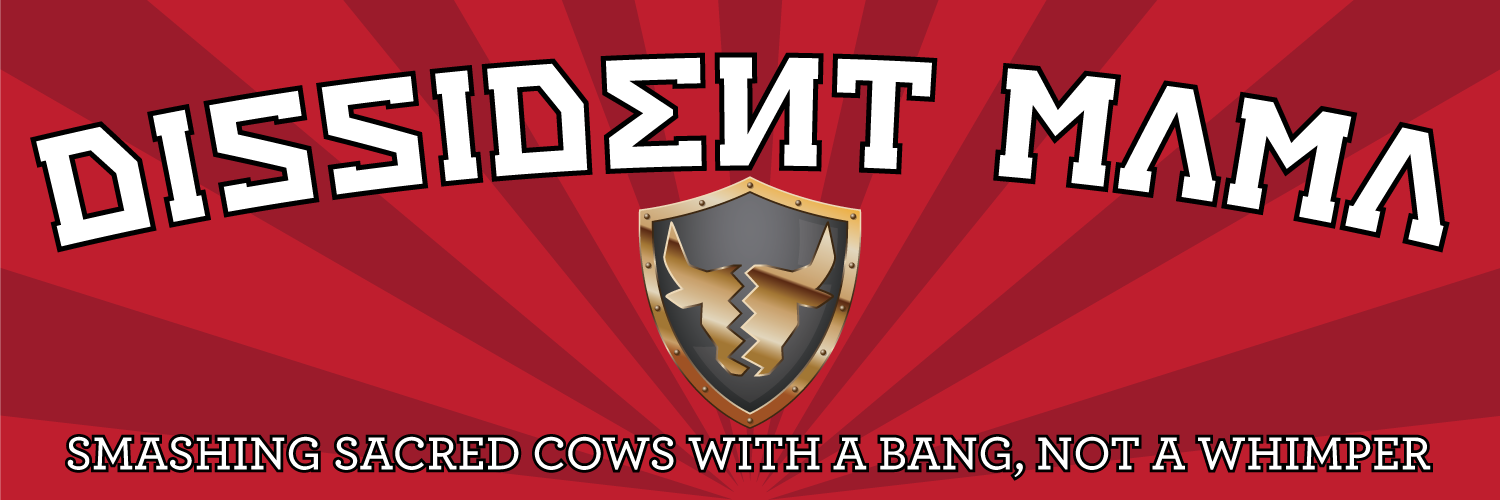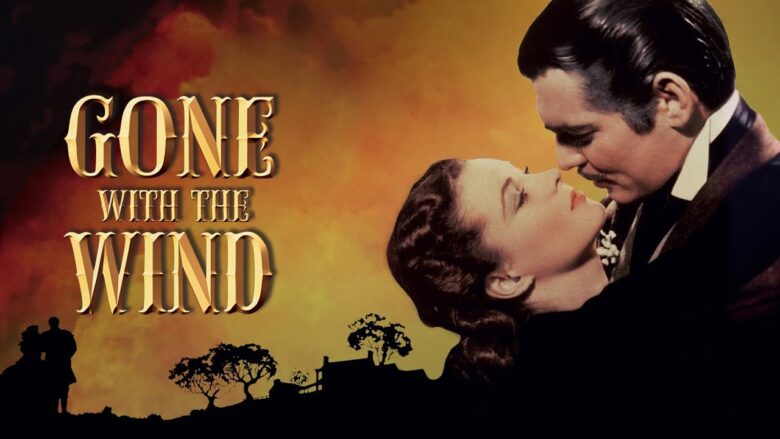When my friend and fellow parishioner Thomas Millary asked me to be a guest on his up-and-coming podcast, Psyop Cinema, I happily agreed. But because it’s a “film industry” show, I also had to pick a movie to critique – something that should kind of encapsulate my work at Dissident Mama, he advised. I’m not much of a movie buff, so I was at a loss for choosing a film.
But then my husband suggested that I tackle “Gone With the Wind” – oh, a film that just so happens to be the highest-grossing film in history and is based upon one of America’s most popular books, second only to the Bible. No biggie, right?! My hubs and Thomas thought it seemed to be the obvious choice, so I deferred to their judgement. However, I knew I had my work cut out for me.
This is how Thomas describes my appearance on his show notes page: “Thomas speaks with Rebecca Dillingham, host of The Dissident Mama Podcast and blog and co-founder of the Ludwell Orthodox Fellowship, about the lies of the Yankee Empire. Rebecca gives her take on the psyops perpetrated by globalists and neocons that have distorted American history and demonized the South. We cover many aspects of the problem of puritanical political utopianism before discussing the nuances of ‘Gone with the Wind.'”
I don’t want to give any spoilers as to whether I think the film is “crypto-progressive” or not. I’d rather you take a listen for yourself to this conversation that I can confidently say is a pretty darn riveting.
But because the cinematic choice – the most highly influential film ever and a long one to boot (run time is just shy of four hours) – was immense, I not only watched GWTW for the umpteenth time, but I researched. A lot. And so I thought I would share with you some of my findings and sources and a few intriguing details that didn’t make their way into my deep-dive with Thomas. Enjoy!
My correspondence with two Southern stalwarts who happen to be Americana movie aficionados:
Dr. Boyd Cathey wrote to me that although GWTW was great from a movie-making perspective, it’s also “just one giant, never-ending soap opera, with Scarlet’s travails seeming to overwhelm and overshadow the South and the War (and Reconstruction) which became like background scenery. Yes, there are moments when the issues confronting the South – war, defeat, reconstruction policies – come alive, but I find them overshadowed and, if you will, overwhelmed, by the relationship between Scarlet and Rhett.”
He continued, “Don’t get me wrong here: obviously, any great film should probably have a personal thematic strand, developing relationships between the stars. GWTW does have those relationships, but in developing them, the Southern framework is, for me, too often submerged. But to say it is the ‘great film about the War’ is for me a stretch.'”
Dr. Clyde Wilson agreed with Cathey that the film “has elements of soap opera.” However, he added, “In the general surrounding history, I think it is accurate and useful truth-telling. On the whole it is has been good for our cause. Remember, both book and movie were international sensations and still are. Just last night I saw a movie about Norwegian resistance fighters in WWII and one of them mentioned having cried at the movie GWTW.”

My visit to Margaret Mitchell’s grave and “The Dump” where she wrote her famous novel:
My essay “Lyin’ Atlanta, part 1” corroborates Dr. Wilson’s comment above and explains that “both the Nazis and the Soviets outlawed the book since it was seen as a story of resistance to central authoritarianism, survival, and hope.” This blog post also includes some background on Mitchell’s ancestry and the burning of her beloved ancestral home, Atlanta.
More on Sherman’s catastrophic campaign across Georgia and Dixie becoming “the stomping grounds of petty imperialists” can be read in my piece “Puritans, part 4: Yankee sanctification.” Not only a stupendous novelist, but Mitchell was also a stellar amateur historian and described the Union-inflicted horror best (in these lines from the book which were included as title cards in the movie):
When Yankees began to descend upon Atlanta, “panic hit the city, helpless and unarmed … For 35 days, a battered Atlanta hung grimly on. … To split the Confederacy and to leave it forever crippled and humbled, the great invader marched leaving behind a path of destruction 60 miles wide from Atlanta to the sea … Tara had survived to face the hell of famine and defeat.”
My Puritans article from above also happens to include this golden rhetorical nugget from Mitchell, who was very much a lady but never one to keep her opinions to herself: “[Yankees] are pretty much like Southerners – except with worse manners, of course, and terrible accents.” Per my research, Mitchell seemed to be “high spirited and vivacious,” just the way Mellie described Scarlett.
A few lines from the movie that jumped out to me as pushing tradition as untenable:
Rhett: “Look at these poor tragic people, the South’s sinking to its knees to never rise again … the cause of living in the past is dying right in front of us … sheer waste.”
Ashley: “The end of our world’s coming.”
Rhett: “Take a good look, my dear, a historic moment, you can tell your grandchildren how you watched the Old South disappear … we were going to lick the Yankees in a month … poor gallant fools.”
Rhett: “Maybe I’ve always had a weakness for lost causes once they’re really lost.”
Ashley: “Civilization’s crumbling … now I find myself in a world which for me is worse than death, a world in which there’s no place for me … but I must stay for ‘honor.'”
And of course the film’s lead title card from where the book’s name originates: “Cavaliers and cotton fields … gallantry took its last bow … knights and ladies faire … master and slave … only in books … a dream remembered … a civilization gone with the wind.”
My myriad of sources:
First, of course, the movie itself, which is free on Archive.org and thankfully does not begin with a reconstructed “trigger warning” that accompanies other reconstructed versions of the film. I, like so many others, have seen GWTW countless times, so much so, that the classic has clearly become part of the fabric of America, the South, and even womanhood, its phrases part of our lexicon, and its characters like family. But this time around, I watched the film much less passively and with a much keener eye. Just what is the story its selling?

And the following articles and books helped guide me in my research and in formulating my opinions on GWTW.
• “Identity Politics and the Southern Gentleman”
• “Southern Identity in ‘Gone With the Wind’”
• “Star Wars and ‘Gone With the Wind’”
• “Hollywood and the South”
• “Adventures in Southern and Confederate Cinema”
• “The Literature Police and ‘Gone With the Wind’”
• “Kith and Kin: The Enduring Ethic of the South”
• “Mel Bradford and the Defense of Southern Conservatism”
• “Why the War Was Not About Slavery”
• “The Unemancipated Country: Eugene Genovese’s Discovery of the Old South”
• “The Lost Cause Considered Once More”
• “How Southerners Committed Cultural and Political Suicide”
• “Classic Confederate Hollywood”
• “Southern Speech“
• “Punished With Poverty: The Suffering South – Prosperity to Poverty & the Continuing Struggle”
• “When the Yankees Come: Former South Carolina Slaves Remember Sherman’s March From the Sea”
• “A Legion of Devils: Sherman in South Carolina”
Don’t forget to check out my chat with Psyop Cinema, featuring both Thomas and co-host Bret Carolla. In fact, the episode with these two Carolina gents marked the 3-year anniversary of the launch of the Dissident Mama Podcast. So, here’s to three more years of taking on big topics and interviewing (or being interviewed by) people with such big brains, no matter what the haters say! Like Scarlett so aptly states, “As God is my witness, they’re not going to lick me.”







Comments
I’m looking forward to listening to your interview with Psyop Cinema. Gone With The Wind is in my top 3 movies of all time. Continue to good work you’re doing. I love southern women who defend their homeland and ancestors. There are so few of you out there.
Author
Well, you can’t beat that compliment! ❤️ And we Southern ladies love all the brave gentleman warriors who defend Dixie. Thanks, David, and hope you enjoy the interview.
Pingback: Oh, Just a Little Critique of the Biggest Film Ever! - Identity Dixie